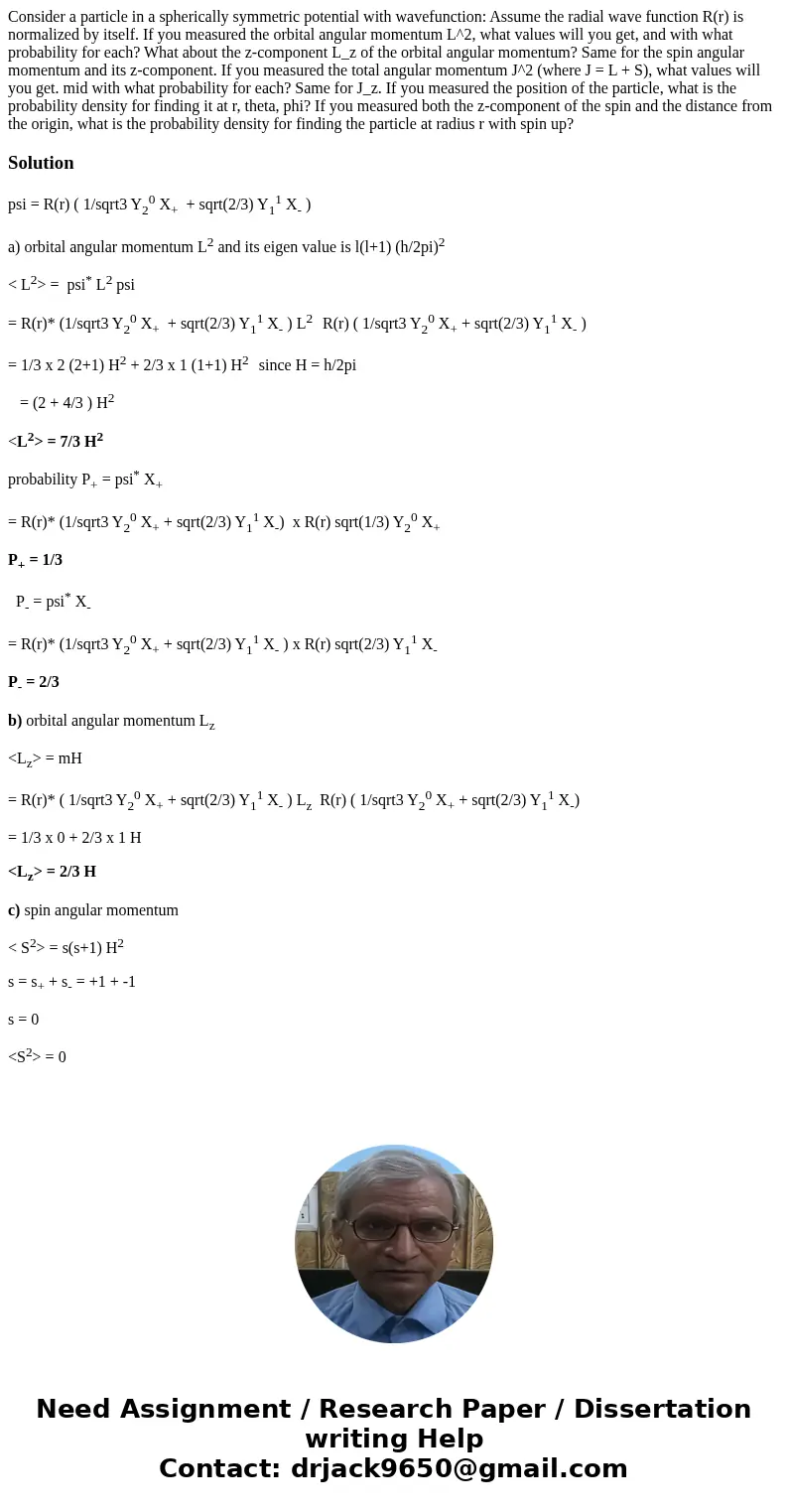Consider a particle in a spherically symmetric potential wit
Consider a particle in a spherically symmetric potential with wavefunction: Assume the radial wave function R(r) is normalized by itself. If you measured the orbital angular momentum L^2, what values will you get, and with what probability for each? What about the z-component L_z of the orbital angular momentum? Same for the spin angular momentum and its z-component. If you measured the total angular momentum J^2 (where J = L + S), what values will you get. mid with what probability for each? Same for J_z. If you measured the position of the particle, what is the probability density for finding it at r, theta, phi? If you measured both the z-component of the spin and the distance from the origin, what is the probability density for finding the particle at radius r with spin up?
Solution
psi = R(r) ( 1/sqrt3 Y20 X+ + sqrt(2/3) Y11 X- )
a) orbital angular momentum L2 and its eigen value is l(l+1) (h/2pi)2
< L2> = psi* L2 psi
= R(r)* (1/sqrt3 Y20 X+ + sqrt(2/3) Y11 X- ) L2 R(r) ( 1/sqrt3 Y20 X+ + sqrt(2/3) Y11 X- )
= 1/3 x 2 (2+1) H2 + 2/3 x 1 (1+1) H2 since H = h/2pi
= (2 + 4/3 ) H2
<L2> = 7/3 H2
probability P+ = psi* X+
= R(r)* (1/sqrt3 Y20 X+ + sqrt(2/3) Y11 X-) x R(r) sqrt(1/3) Y20 X+
P+ = 1/3
P- = psi* X-
= R(r)* (1/sqrt3 Y20 X+ + sqrt(2/3) Y11 X- ) x R(r) sqrt(2/3) Y11 X-
P- = 2/3
b) orbital angular momentum Lz
<Lz> = mH
= R(r)* ( 1/sqrt3 Y20 X+ + sqrt(2/3) Y11 X- ) Lz R(r) ( 1/sqrt3 Y20 X+ + sqrt(2/3) Y11 X-)
= 1/3 x 0 + 2/3 x 1 H
<Lz> = 2/3 H
c) spin angular momentum
< S2> = s(s+1) H2
s = s+ + s- = +1 + -1
s = 0
<S2> = 0

 Homework Sourse
Homework Sourse